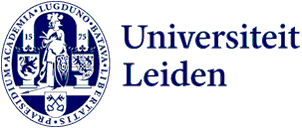
Leideners and researchers learn from each other at the Science Market
3 October University has become something of a tradition: a bit of science among the Leidens Ontzet celebrations. During the new and improved edition, the WetenschapsWarenMarkt (Science Market), visitors spoke to researchers about the nitrogen problem, making organs and the city’s connections with Africa.

The odd downpour does not spoil the fun. Undeterred, dozens of Leideners visit the science stalls in front of the Kamerlingh Onnes Building. They include mathematics students Tobias, Daniëlle and Jeroen, who are keen to find out more about how scientists are using stem cells to beat osteoarthritis.
Stem cells and new organs
‘They’re working at the LUMC on 3D prints of cells that can be used to make new joints. That’s pretty cool’, says Daniëlle, clearly impressed by what she has heard. Although they themselves are more into numbers, the three students find it fascinating to hear about other disciplines.
‘I think it’s really good that scientists are here to explain their work. That ivory tower does need to be left from time to time’, says Tobias. Hessel Honkoop from the LUMC couldn’t agree more. ‘We also need to promote the regenerative medicine research that we do.’
-
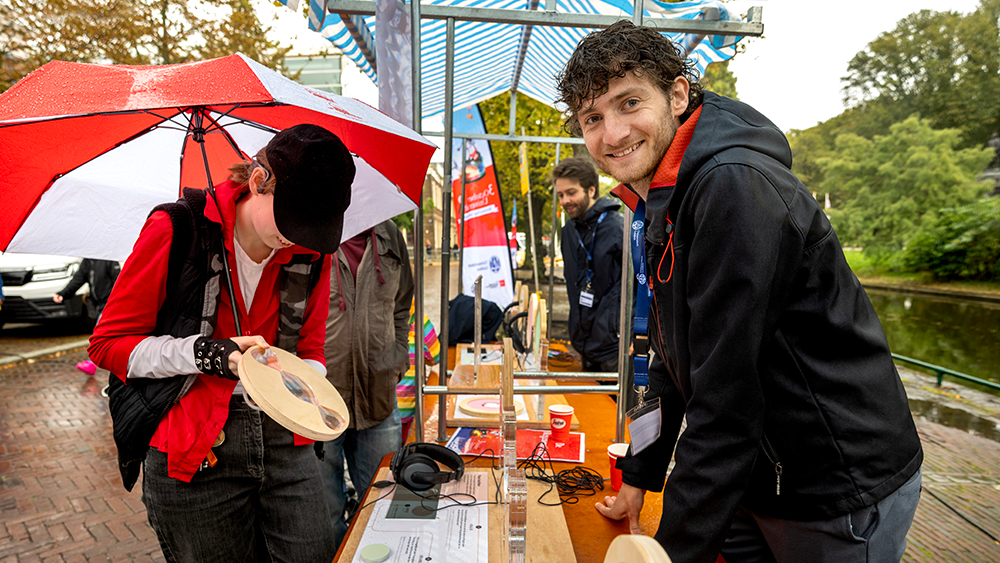
Hessel Honkoop (r) explains how a new heart could soon be made from stem cells -
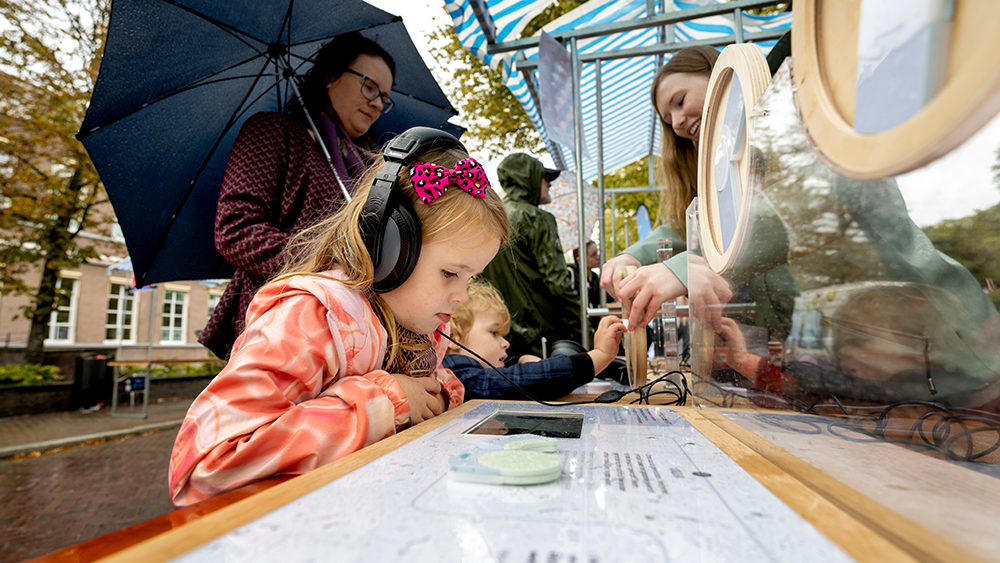
Even the youngest visitors are fascinated, as here by an explanation of osteoarthritis
‘If you don’t have public support, you can forget it as a scientist’
‘Take stem cells, for example. We can use them to develop new therapies and possibly even create organs in the future. If you want to get that message across, you first have to be able to explain what stem cells are. You have to spark people’s enthusiasm. If you don’t have public support, you can forget it as a scientist.’
Lab in a van
That support is also important to the researchers from the Psychology Lab on Wheels. In fact, their lab in a van would be nothing without the Leideners who volunteer to take part in real psychological research.
-
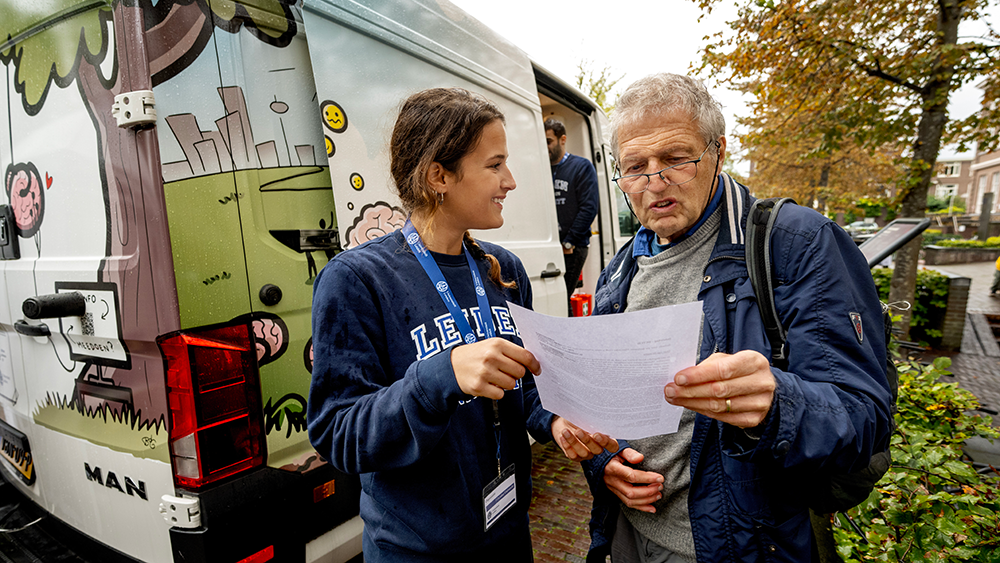
Researcher Fabiola Diana (l) talks to a visitor who has just taken a psychological test -
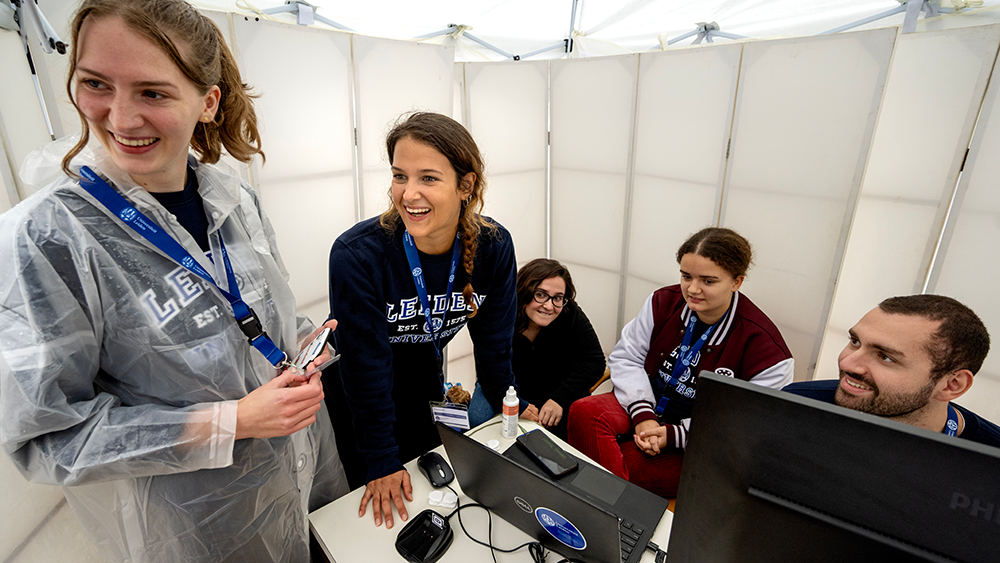
Science is fun, as the Psychology Lab on Wheels team shows
Research Fabiola Diana explains: ‘In the van, we do research on how test subjects interact with robots and avatars (digital humans) and how this interaction differs from human interaction.’ Developers will be able to use the results in the future to create robots and avatars that are more responsive to human emotions, which in turn is important for the digitalisation of health care, for example. The Psychology Lab on Wheels goes to markets and festivals so that as diverse an audience as possible can participate in the research.
Nitrogen problem in a game
There was also something for game lovers at the WetenschapsWarenMarkt: a serious game about nitrogen. In NitroGenius, the players are consumers or stakeholders from agriculture, industry or government. They have to decide how to reduce nitrogen emissions, says researcher Berent Baris.

‘Mum and Dad talk about it quite a lot at home and I also think there’s not enough nature and wildlife’
Nine-year-old Stan does not let the tricky subject stop him. With his brother on the computer next to him and his father watching, he makes some tough choices. ‘Mum and Dad talk about it quite a lot at home and I also think there’s not enough nature and wildlife. I think it’s fun playing a game like this. In real life, nothing is actually happening at the moment with the nitrogen problem, while a lot of money is being spent on other things. That’s bad.’
Leiden and Afrika
Leideners curious about the connections between the city and Africa can join a walk. Guide Jos Damen from the Africa Study Centre takes them to a number of special places. ‘At the entrance to the Academy Building is a plaque with Herman Coster’s name on it. He was the chair of Minerva and was killed in the Boer War. People have passed that name dozens of times but are only now discovering that connection. I think it is important for us as researchers to actively share knowledge and this is a great way to do so.’
-
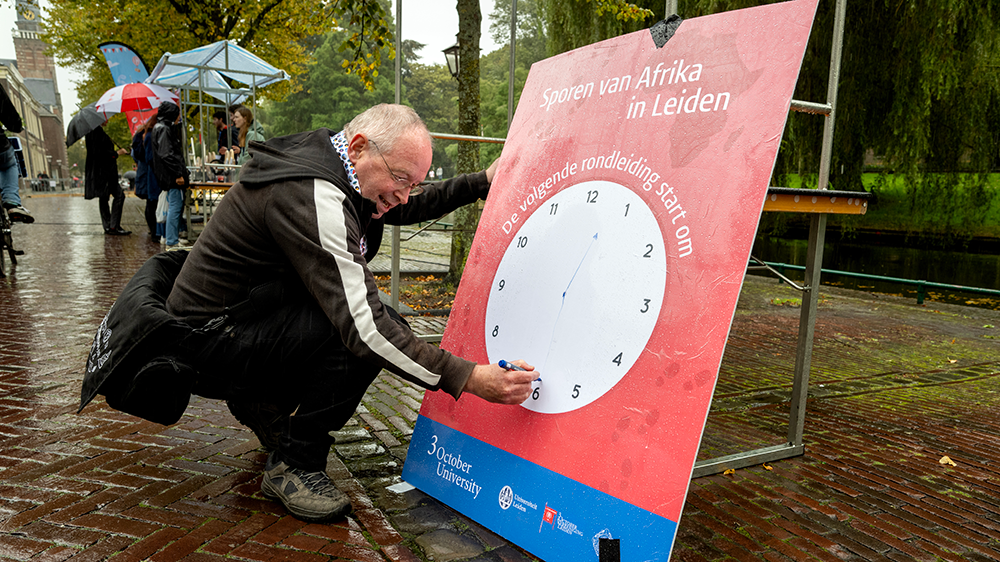
Guide Jos Damen prepares for the next tour of ‘African’ Leiden -

Born and bred Leidener Dick tests his knowledge of the university buildings in town -

A raincoat comes in very handy
Students from the Augustinus student association helped make the market a success. They challenged visitors to test their knowledge in a game: What are the names of the university buildings in town? Giving the right answers did not prove easy for Leidener Dick. ‘That went terribly. I know the old buildings, but the new ones: no idea.’ He thinks the WetenschapsWarenMarket is a fun initiative. ‘But it could do with some more stalls, more scientists and showing even more of what the university gets up to.’
Sign up
Feel inspired? Leiden University researchers who want to share their research with the people of Leiden can already apply for the 2024 edition of 3 October University. Send an email to Science Communication Adviser Marieke Epping.
Text: Tim Senden
Photos: Marc de Haan
